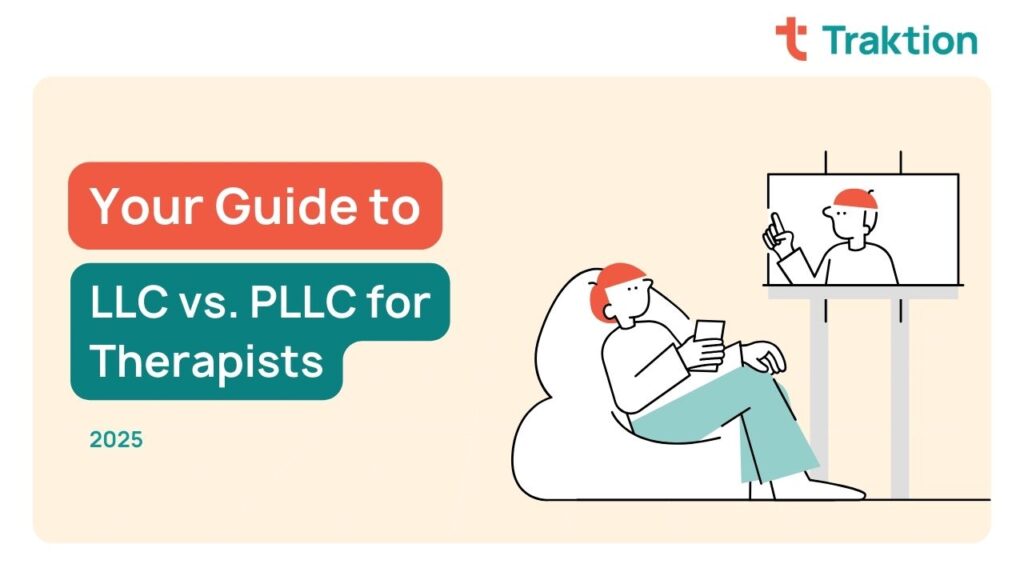If you’re starting your therapy practice, you’ve probably run into the terms LLC and PLLC. And if you’re like most therapists, your brain instantly goes:
“I just want to help people—why does this have to be so complicated?”
We get it.
The whole LLC vs PLLC for therapists thing feels like a legal maze no one prepared you for in school.
So let’s break it down quickly in plain English, so you have what you need to know to make a decision.
First, So What Is an LLC?
LLC stands for Limited Liability Company, which sounds fancy, but it’s really just a type of business setup that protects you.
Let’s say something goes wrong in your business—maybe a client sues you, or you default on rent. If you’re an LLC, they can’t come after your personal stuff (like your house or personal checking and savings accounts).
That’s what “limited liability” means.
It’s also super flexible for taxes and pretty easy to get set up. A lot of solo business owners use LLCs for that reason.
So… What the Heck Is a PLLC Then?
PLLC = Professional Limited Liability Company.
Basically, it’s just like an LLC, but with a little extra step for people who are licensed professionals, like therapists, social workers, doctors, and lawyers.
Why? Because some states want to make sure that if you’re offering professional services (like therapy), you’re actually licensed and approved before you go into business.
So instead of just saying “Hey! I’m opening a business,” they say: “Great, but show us your license first.”
Same liability protection. Same basic structure. Just more paperwork and hoops to jump through.
Is There a Real Difference?
Structurally? Not really. An LLC and a PLLC both give you liability protection, and both can be taxed in similar ways.
But where it really matters is at the state level. Some states say, “Hey, if you’re a licensed therapist, you have to use a PLLC.”
Others say you can use either.
And a few states don’t offer PLLCs at all.
So it’s not really about which one is “better.” It’s about what your state will actually allow.
How This Plays Out (State by State)
Here’s where it gets a little tricky.
If you’re in New York, North Carolina, Texas, or Florida, your state pretty much requires therapists to form PLLCs.
If you’re in California, you actually can’t form an LLC or PLLC at all as a therapist. You’d need to form something called a Professional Corporation instead.
And in some other states—like Colorado or Illinois—you might have a choice. But even if both are allowed, many therapists still go with a PLLC just to be on the safe side.
Bottom line: You’ll need to check what your specific state expects from licensed professionals.
When Do You Actually Need to Figure This Out?
If you’re still testing the waters – maybe seeing a few clients, using your own name, and not running ads or leasing space – you probably don’t need to panic just yet.
But once you start doing business under a name, want to open a business bank account, lease an office, or grow beyond yourself… then yeah, you need to get your structure in place.
This isn’t something to skip over or deal with “later.”
The sooner you get this right, the easier everything else becomes—from taxes to liability protection to just looking legitimate.
Not Sure What to Do Next?
This is exactly what we help with at Traktion. We work specifically with therapists, and we’ve walked many private practices through this exact decision.
If you’re confused about whether your state requires a PLLC, unsure how to set it up, or just don’t want to deal with any of the paperwork, we’re here to help.
Head over to our Getting Started page to book an introductory call, and let’s make sure your business is set up right, from day one.
Until next time!
